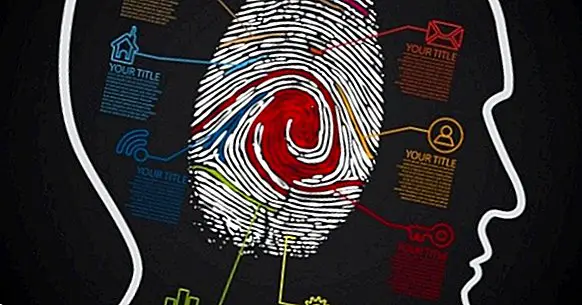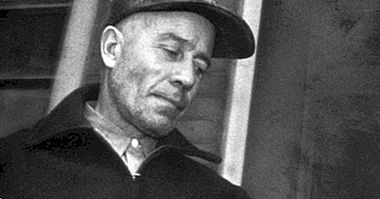5 things you should know before studying Criminal Psychology
Criminal Psychology, like the forensic sciences, has taken a significant boom in recent years . That is why academic demand has also been increasing, especially in countries such as Spain, Mexico and Argentina. It is a subdiscipline that with the passage of time has provided us with very valuable information about the psychological reasons that lead a person to commit an illicit act.
Maybe the simple idea of pursuing Criminal Psychology is very attractive and makes many people decide for this specialization. But nevertheless, It is always useful to get to this type of training programs knowing something about this branch of psychology .
Factors to consider before studying Criminal Psychology
Whether you want to study a master's degree, a specialty or a diploma, here you can find five factors that you should consider before starting your course.
1. Criminal Psychology or Forensic Psychology? The differences
The first thing you should clarify in your mind before going through that course is the following: Do you want to study Criminal Psychology or Forensic Psychology? Contrary to what an immense majority thinks, both branches are not the same, although they have a certain similarity to each other.
While Criminal Psychology is responsible for trying to understand the criminal, unravel what psychological causes motivate him to perpetrate his actions, make criminological profiles and estimate how to intervene so that he does not return to commit a crime; Forensic Psychology has as main tasks to collect, analyze and present psychological evidence to clarify some judicial process; that is, the psychological expertise.
If you want to know more about what are the differences between Criminal Psychology and Forensic Psychology, it can be very useful to review this article.
2. Why do I want to study this subdiscipline?
Just like what happens when it comes to developing a research paper, we must define the topic. It is essential to have completely clear why you want to study this branch of psychology , in this way you can get the most out of the course and always be motivated to work.
Are you interested in taking part in the study of the phenomenon of crime and its causes? Or what really calls you is to clarify whether a person can be found guilty or not of a crime for having a mental disorder ?. If you answered "yes" to the second question, it is more likely that yours is Forensic Psychology.
Of course, the above is only a vague example of the extensive work of both. But it is worth clarifying from the beginning what work you would like to do in order to know that what you are about to study, will help you to achieve it.
3. What requirements should I meet?
If up to this point you are already more sure that Criminal Psychology is your thing, maybe now you ask yourself what are the requirements that the different universities request to take your master , specialty or diploma. It will be more to say that each university requests different subjects and requirements, but unless you decide to do the degree with the full specialty (ie, the degree in criminal psychology), usually the universities only request that you have a previous degree in psychology (and if it is clinical, better) for the case of masters and specialties.
In the case of graduates, in many cases they only request that the performance of your work be related; in this way, lawyers, penologists and criminologists can also take it.
3. What will be my competences at the end of the course?
Some of the tasks you can do after specializing in Criminal Psychology are the following: make opinions in criminal psychology, work as a prison psychologist to help the social rehabilitation of criminals , give attention and help prevent violence (for example in the community, school or work), intervene in situations of psychological emergency and provide first aid to criminals and antisocial subjects in situations of risk, make criminological profiles in research agencies criminal, assess violence and quantify it, and develop methods of psychological prevention, among others.
4. Is it like in the television series?
The most immediate answer to that question is a resounding NO . The series have not only been responsible for spreading a huge and false fantastic halo around criminal psychologists, who are seen as fortune-tellers who are perfectly capable of understanding everything they think and will do a criminal just by seeing the "modus operandi" of this, They have also stigmatized the prison population in general by promoting the use of stereotypes in some types of criminals, making each criminal look like a brutal and sadistic being thirsty for blood, when reality distances itself a lot from these concepts.
5. Is this course really for me?
Finally, this is the most important question of all: Is this specialty / master / course really for you? Being a psychologist is a hard task and a very big responsibility, but it is even more so when it comes to getting into the minds of criminals. To close this last point and also by way of reflection, perhaps these questions will help you reaffirm if Criminal Psychology is your thing:
- Are you willing to meddle in the most remote passages of the human mind to unravel why a subject decides one day to commit a crime?
- Would you like to make judgments in Criminal Psychology to determine what were the psychological factors that led to "X" subject to commit a crime?
- Do you see yourself coexisting during work days with different types of delinquents and letting go of prejudices?
- Will you study this career, not because of the curiosity generated by studying the antisocial, but to help society and especially the criminals who want to reintegrate into society?



















